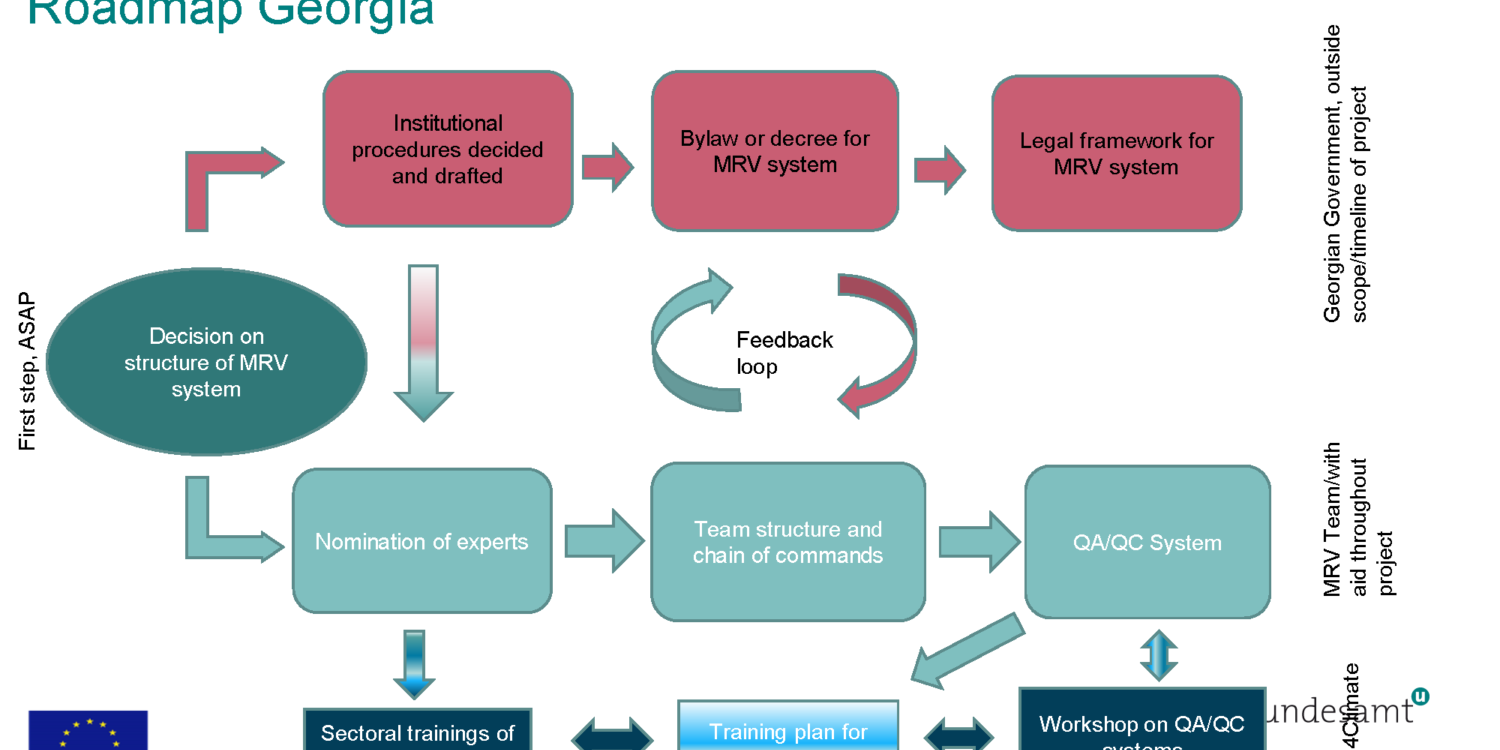Georgia unconditionally commits to reducing the national greenhouse gas emissions (GHG) to 35 percent of its 1990 baseline level by 2030. Measuring, reporting, and verifying (MRV) of emissions is crucial to understanding the greenhouse gas (GHG) emissions sources and trends and developing mitigation programs.
To help decision-makers determine the appropriate approach to enhance the national MRV system of Georgia, the Environment Agency Austria prepared a set of recommendations based on UNFCCC requirements and best practices of the EU member states. On 25 March, the document was presented to representatives from the Ministry of Environmental Protection and Agriculture, inventory experts and civil society during an online workshop organised by the EU-funded EU4Climate regional initiative implemented by the UNDP in Eastern Partnership countries.
The EU4Climate expert Olga Gassan-zade and Maria Purzner from the Environment Agency Austria presented different aspects of the current status of Georgia’s GHG inventory as well as the experience of Austria in that regard.
Several topics such as the Paris Agreement Enhanced Transparency Framework (ETF), interlinkages between ETF and Article 6, National Inventory Systems (NIS), an overview of Georgia’s NIS, technical elements of inventory preparation, proposed MRV Roadmap for Georgia were discussed with the detailed explanation of each methodology and approach.
What are the MRV principles and how the NDC cycle looks, what are the foundations and mechanisms of the Paris Agreement were brought to the attention of the audience alongside the characteristics of the MRV system in Georgia where the Ministry of Environmental Protection and Agriculture (MEPA) – Climate Change Division – is the responsible entity for GHG inventory coordination, and the Environmental Protection and Education Centre prepares the most recent inventory report.
Discussions were focused more on the importance of the MRV system and the collaboration between the climate and air division to harmonize reporting on pollutants and F-gases. Presented future steps of the Georgia roadmap were discussed with attention to the preventive actions to avoid mistakes that, in its turn, will be ensured through workshops and specific trainings to be conducted for MEPA and the national inventory experts.
The presentations of the event can be found here.



